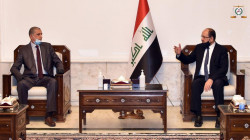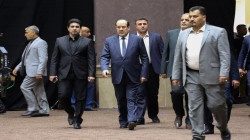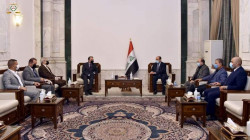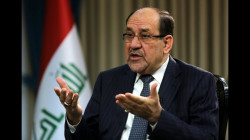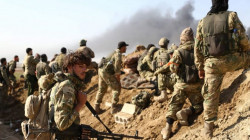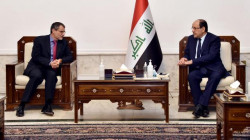The elections' fireball: Al-Maliki ignited it, so who is going to put it out?
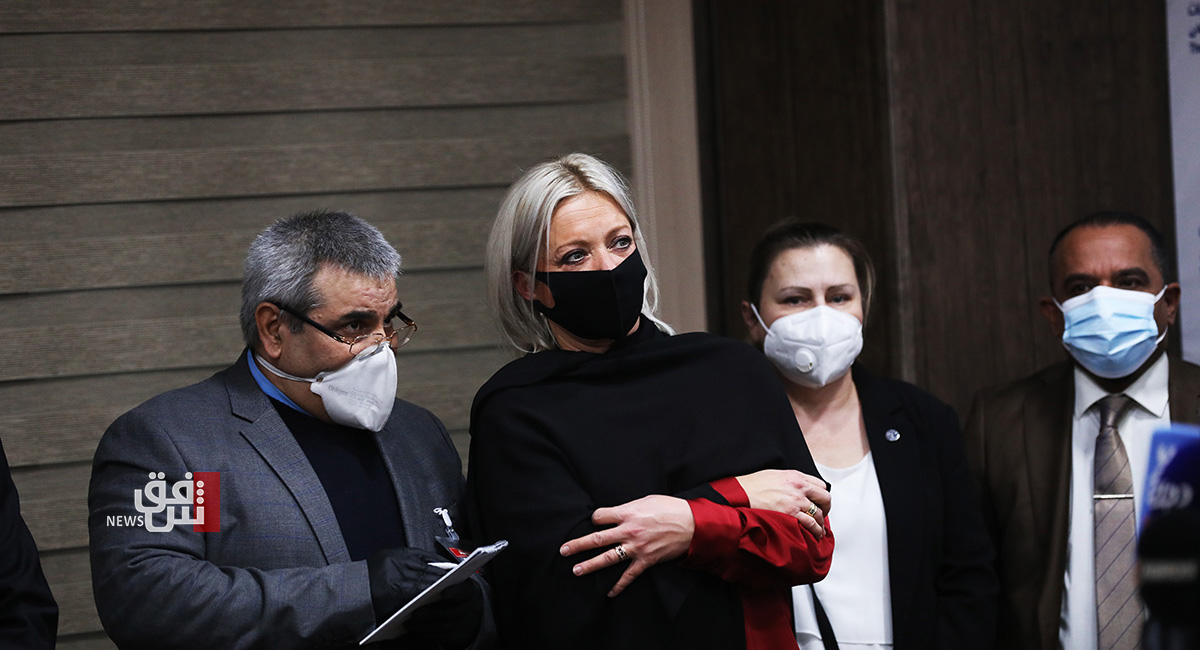
Shafaq News / "Protecting the elections’ integrity". Since the representative of the UN Secretary-General in Iraq, Jeanine Hennis-Plasschaert, said this phrase about ten days ago, the political debate between the Iraqi forces has flared up; waiting for the situation to be resolved with a clear statement from Mustafa Al-Kadhimi's government, whether it asked the International Organization to "observe" the elections, or to fully "supervise" it.
The situation's sensitivity is that the elections - scheduled for October - are preceded by several variables, not only because Iraq is distributed - for the first time - in 83 constituencies, but also because it is in response to the demands of the demonstrators protesting the performance of the existing political system, which Al-Kadhimi has pledges the citizens and the voters to address.
Why fear?
There is a fear among many of the "traditional" political forces that have dominated the political scene during the past 15 years that the election results will diminish their role, alter the balance of power, and change the existing political game.
Ihsan Al-Shammari, an expert on Iraqi political and security affairs, told Shafaq News agency, "Some Iraqi political forces have refused the international supervision over the upcoming elections due to their fear of it, as it would prevent any fraud and manipulation of the election results - as was the case before".
"There are political parties that rely entirely on fraud and manipulation of the results of each election to sustain their influence in parliament and the political process in general. That is why they do not want international supervision, " Al-Shammari continued.
"Some political forces fear that Iraq will be subject to close international observing. Especially since it will not stop at the issue of elections, but may go beyond the issue of prosecuting the corrupt, which is why these parties now want to block the road by rejecting this international supervision", he added.
The international position
Article 21- III of the Universal Declaration of Human Rights states, "the will of the people is the basis of the power of government, and it must be manifested through fair and periodic elections". As its website indicates, the United Nations considers elections to be part of the decolonization, democratic transitions, and the implementation of peaceful consensuses in the world.
How much does that apply to Iraq? The idea of a democratic transition and the implementation of peaceful compromises, largely reflects the idea of early elections approved by Iraqis - scheduled for June and then postponed until October. However, that does not answer the question of whether the international organization is legally capable of supervising Iraq's early elections.
According to the United Nations, electoral assistance is provided only at the concerned state's request or based on a Security Council or the General Assembly's mandate.
In this context, Hennis-Plasschaert's statement came after the Iraqi government requested the Security Council to protect the election's integrity, "The Iraqi government has submitted a request to the UN Security Council to protect the integrity of the elections, and this can be done in different ways; we have observing and supervision – as observing is the cornerstone of the international community's presence in the elections. However, the Security Council has not taken any decision on its participation in the Iraqi elections, so we are waiting for it".
The opposition front
"The rejection of international supervision of the upcoming Iraqi parliamentary elections comes to preserve Iraq's sovereignty because any external interference in this file is an infringement of the country's sovereignty and fateful decisions", Rasul Radhi, a leader of the Islamic Dawa party, told Shafaq News agency.
"The presence of direct international supervision of the upcoming Iraqi elections means making it unfair. Especially since there is a fear that such supervision will open the door of manipulating and falsifying the election's results in favor of certain political forces", Rasul added.
"We are with international observation - as happens in every election in Iraq and the rest of the world - without any direct supervision or interference in the electoral process that would undermine Iraq's sovereignty and the election's integrity", he continued.
This talk is in line with the statement of the leader of the State of Law Coalition and the Islamic Dawa Party, Nouri Al-Maliki, who was the first to announce his rejection of international supervision of the elections, and then the controversy ensued between supporters and opponents.
"Putting the elections under international supervision is very dangerous", al-Maliki said, stressing that no country accepts international supervision of its elections because it is a violation of national sovereignty. While he agreed on "Just observing the elections".
The supporters' front
On the other hand, there are positions in favor of the international supervision, where The Salvation and Development Front's head Osama Al-Nujaifi and Kurdistan's Democratic Party's (KDP) delegation headed by Hoshyar Zebari stressed the international supervision of the upcoming elections' importance.
Al-Nujaifi stated that his front is working from the beginning to strengthen the national identity away from the political process' blockages, stemming from an understanding of loyalty to the people and their legitimate aspirations. Pointing out that the front considers the upcoming elections - if held per fair standards and international supervision – as an opportunity to strengthen the national space that can accommodate all.
"Anyone who says that the Electoral Commission is independent is deceiving himself. Especially since the current parliament was shaped with a huge amount of fraud and the will of the Iraqis is contrary to what is happening in it, and that is why we have witnessed the demonstrations and sit-ins", said Atheel Al-Nujaifi, a leader of the Iraqi front.
"Those opposing the international supervision do not want anyone to prevent them from falsifying and manipulating the election's results. They are trying to reproduce themselves against the people's will, and they want to continue with the corrupt approach they have been working on for years. The presence of organizations, such as the United Nations, strengthens the Iraqi society's confidence in the elections and their results", he added.
This controversy prompted Iraqi Shiite cleric, Moqtada Al-Sadr, to declare his position on the subject of UN observing the elections, announcing from his stronghold in Najaf that he supports the United Nations' supervision of the early elections in Iraq.
Early parliamentary elections are scheduled to be held in Iraq in 2021. It was the main demand of the popular anti-government protests launched in October and attended by Sadrists.
The early elections were set to be held in June, a year ahead of schedule, but have been postponed until October.
"Postponing the elections will be a disaster for Iraq", Al-Sadr said, calling for not delaying it again. At the same time, he warned of the competing parties' fraud attempts, "I do not want fraud, that is why I am asking for the United Nations' intervention to supervise the elections".
"UN supervision of early elections is desirable, provided that other regional and international countries do not interfere in our affairs", Al-Sadr added.
Elections are supposed to be held under a new electoral law in which the number of constituencies has been reduced. Voting based on lists system has been abolished.
With this electoral system, the Sadrist Movement led by Muqtada Al-Sadr is expected to win the largest number of votes.
In November, Al-Sadr supported, for the first time, the idea of a member of his movement as prime minister.
What is the role of the United Nations electorally?
The United Nations' website states that United Nations assistance should be implemented in an objective, impartial, and independent manner - with respect for sovereignty. While recognizing that the responsibility for organizing the elections rests with the Member States.
According to the United Nations, since 1991, more than 100 countries have requested electoral assistance and received it. Also, more than 300 electoral projects have been implemented.
During the 1990s, the United Nations observed - or held historic elections and popular consultations - in Timor-Leste, South Africa, Mozambique, El Salvador, and Cambodia.
In recent years, the organization has also provided critical technical and logistical assistance in crucial elections in many countries, including Afghanistan, Sudan, Iraq, the Central African Republic, the Democratic Republic of the Congo, Sierra Leone, and Nepal.
The types of assistance provided by the UN electorally relate to technical assistance (legal, operational, and logistical). It is also about supporting the creation of a favorable environment as well as the organization of the electoral process. In such a case, the UN "has full authority over the process", but given the primacy of the principle of national ownership, this type of assistance is rarely delegated and can only be done in particular cases; after the end of conflict or decolonization characterized by inadequate national institutional capacity. This type of mandate is possible only through the Security Council's resolution or the General Assembly of the United Nations.
The UN also provides its support in the form of ratification and documentation of the elections' integrity. Its role can also be through observing the voting process, or by supervising elections. It can also contribute through coordinating between election observers.
The UN entities providing electoral assistance may be either the Department of Political Affairs and Peacebuilding, the Department of Peacekeeping Operations, the UN Development Programme, the UN Human Rights Commission, UN volunteers, the UN Office for Project Service, the UNESCO, or the International Organization for Migration.
